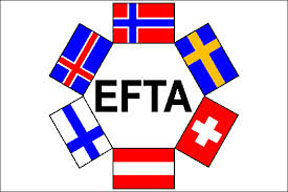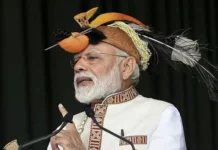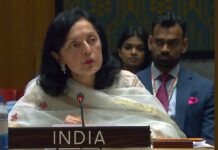 GENEVA: The negotiations between the European Free Trade Association and India over a free trade pact are stuck due to intellectual property rights issues but the Swiss government is hopeful that talks could soon resume.
GENEVA: The negotiations between the European Free Trade Association and India over a free trade pact are stuck due to intellectual property rights issues but the Swiss government is hopeful that talks could soon resume.
Switzerland’s Economic Affairs department said that free trade negotiations between the EFTA states – Iceland, Liechtenstein, Norway and Switzerland – and India are stuck due to intellectual property rights issues.
“The negotiations on certain issues like tariffs and non-tariff measures were promising. Unfortunately, concerning other important issues like intellectual property and data security the positions diverge widely,” Isabel Herkommer, spokesperson for State Secretariat for Economic Affairs (SECO) told PTI in an email interview.
“We hope to resume negotiations as soon as possible. We still have a very good relationship with our Indian partners,” she said.
The free trade negotiations that were launched between the EFTA and India in 2008 for trade in goods, services and investments have been stalled primarily due to strong objections from the Swiss pharmaceutical industries.
The SECO chief Marie-Gabrielle Ineichen-Fleisch told a Swiss daily yesterday that chances of a free trade accord being signed between India and Switzerland were “low” because it is not just about patents, but also to brand protection.
The total Indo-Swiss trade went down by 36.5 per cent last year, though India’s exports to Switzerland increased while the imports, which primarily includes pharmaceuticals, machinery, transport equipments, chemical products and watches, decreased.
The balance of payments, however, is still heavily skewed in favor of Switzerland.
According to the Ministry of Commerce data, India’s exports to Switzerland was USD 1.8 billion in 2013-14 and imports were USD 19.3 billion for the same period.
Many multinationals, especially pharmaceutical companies in the US and the Switzerland, have been lobbying against India’s “weak IP regime”, especially over a provision for compulsory licensing to meet public health requirements and absence of a period of exclusive marketing rights when a new drug gets regulatory approval in the Indian patent laws.
The Swiss pharmaceutical giant Novartis lost a case in April 2013 in India’s Supreme Court which denied a patent to the multinational for its cancer drug Glivec.
Developing countries like India have the support of the World Health Organization that encourages member states to make use of the flexibilities in the WTO-administered Trade-Related Aspects of Intellectual Property Rights (TRIPS) in view of maintaining public health.
India’s IPR policy affects billions of people globally as it is the largest supplier of low-cost generic medicines. –PTI






